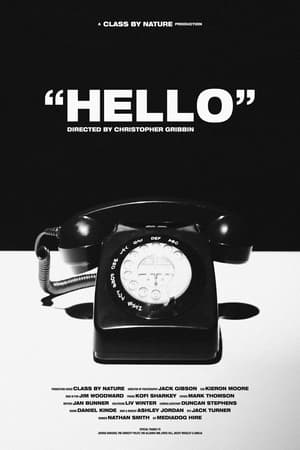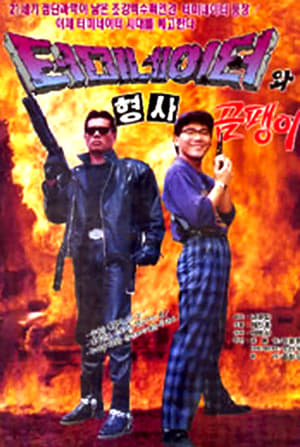
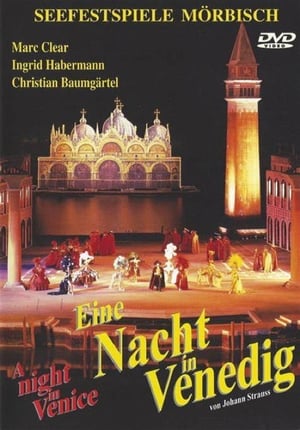
A Night in Venice(1999)
Johan Strauss Eine Nacht in Venedig (1883) together with Die Fledermaus and Die Zigeunerbaron, has long been among the three most popular of the more than a dozen operettas composed by the 19th c. Waltz King. This Rudolf Bibl conducted performance was recorded live during the Seefestspiele Moerbisch Austria Festival in 1999 and features Marc Clear, Gideon Singer, Evelyn Schörkhuber , Ingrid Habermann, and Anton Steingruber.
Movie: A Night in Venice
Top 10 Billed Cast
Herzog
Delacqua
Barbara, seine Frau
Barbaruccio, Senator
Testaccio, Senator
Annina, Fischerin
Caramello, Barbier
Pappacoda, Makkaronihoch
Ciboletta, Barbaras Zofe

Eine Nacht in Venedig
HomePage
Overview
Johan Strauss Eine Nacht in Venedig (1883) together with Die Fledermaus and Die Zigeunerbaron, has long been among the three most popular of the more than a dozen operettas composed by the 19th c. Waltz King. This Rudolf Bibl conducted performance was recorded live during the Seefestspiele Moerbisch Austria Festival in 1999 and features Marc Clear, Gideon Singer, Evelyn Schörkhuber , Ingrid Habermann, and Anton Steingruber.
Release Date
1999-07-15
Average
6
Rating:
3.0 startsTagline
Genres
Languages:
DeutschKeywords
Recommendations Movies
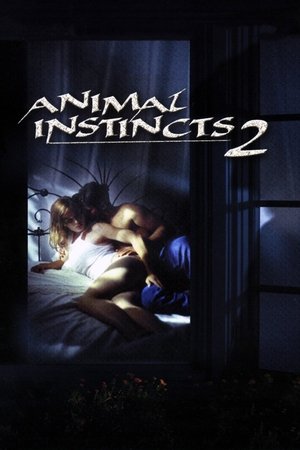 4.5
4.5Animal Instincts 2(en)
An unhappy divorcée has the bad fortune to move next door to a security systems installer, a voyeur whose hobby is planting hidden video cameras in the bedrooms of all his clients. He then monitors the sex lives of his customers through an elaborate TV monitor system in his garage. Joanna Cole becomes his latest victim, but when she discovers the camera by accident, she reverts back to her exhibitionist ways and begins putting on sex shows for his pleasure. Things gets ugly when Jim professes his love for her but is rebuffed.
Ultimate Driving Craft 3 - Eyes on main beam(en)
Chris has vast experience in driver training both as an advanced driving instructor and driving examiner. This is the third in the Ultimate Driving Craft series of high quality advanced driving DVDs which have received international acclaim having sold to 39 countries. Filmed with two HD professional movie cameras and professionally edited by Green Gecko Television Ltd who have also added some excellent animation to support Chris's teaching of driving skills. In this DVD Chris highlights a problem that affects all drivers. It is called the natural focal point and not the best way to drive. He explains what it is, why it happens and what we, as drivers, can do about preventing it.
Hello(en)
When Max (Eric Stoltz), urged on by "Risk Management," a self-help book for the hapless, decides to approach his fellow ferry-commuter Rory (Susanna Thompson), he hopes simply saying hello might change his life for the better. But Rory only accepts contact by contract. Max finds he can play along. As the two negotiate a whirlwind relationship on paper, Rory slowly lets down her guard; but when her unresolved personal life intervenes in the form of Donald (Kevin Tighe), Max must manage a little more risk than he bargained on.
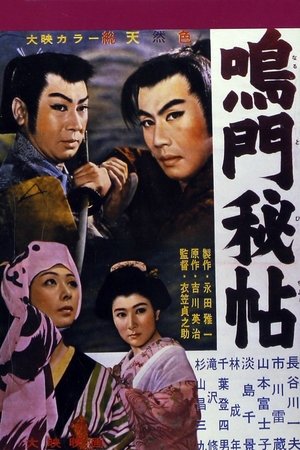 6.9
6.9Secret of Naruto(ja)
From the pen of Yoshikawa Eiji comes this exciting story. The Naruto Strait separates Tokushima from the islands of Awaji and Honshu. On Tokushima the mad lord dreams of conquest and forges a bloody revolt against the Tokugawa shogunate. A mysterious swordsman named Noriyuki Gennojo has crossed Naruto’s waters to uncover the Awa clan’s secrets. He puts his life on the line after finding a testament of Awa’s secrets, written in blood by a dying man. Joining Noriyuki are a female ninja who loves him, and the beautiful daughter of an enemy who’s sworn to kill him. Awa’s defenders willl stop at nothing to prevent the blood-soaked letter from reaching the shogun.
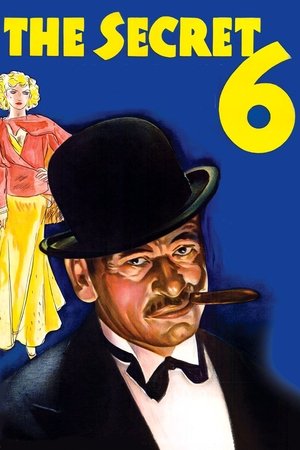 5.8
5.8The Secret Six(en)
Bootlegger/cafe owner, Johnny Franks recruits crude working man Scorpio to join his gang, masterminded by crooked criminal defense lawyer Newton. Scorpio eventually takes over Frank's operation, beats a rival gang, becomes wealthy, and dominates the city for several years until a secret group of six masked businessmen have him prosecuted and sent to the electric chair.
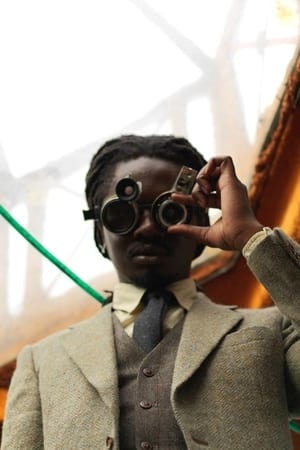 7.7
7.7Finding Fanon 1(fr)
‘Finding Fanon’ is the first part in a series of works by artists Larry Achiampong and David Blandy; inspired by the lost plays of Frantz Fanon, (1925-1961) a politically radical humanist whose practice dealt with the psychopathology of colonisation and the social and cultural consequences of decolonisation. In the film, the two artists negotiate Fanon’s ideas, examining the politics of race, racism and the post-colonial, and how these societal issues affect their relationship. Their conflict is played out through a script that melds found texts and personal testimony, transposing their drama to a junkyard houseboat at an unspecified time in the future. Navigating the past, present and future, Achiampong and Blandy question the promise of globalisation, recognising its impact on their own heritage.
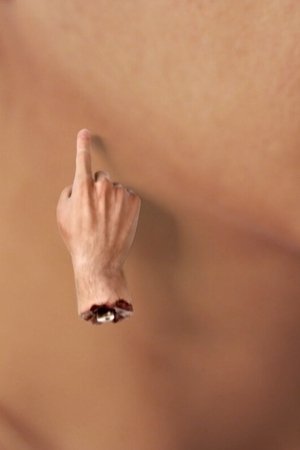 6.1
6.1Hello(en)
Hello explores changes in two people’s working lives: a Mexican trash picker who separates and collects recyclable materials from landfills to sell by the kilo, and a German freelance computer-animation designer working for the advertising industry in Berlin. The double interview is controlled and manipulated by a computer-generated severed hand which Maria describes as an object once discovered in the trash while working in the violent northern town of Mexicali. This CGI hand was in turn produced by Max, who was born with no arms, and sought refuge in computer-imaging as a means to operate and manipulate a digital reality.
 7.4
7.4Red Desert(it)
In an industrializing Italian town, a married woman, rendered mentally unstable after a traffic accident, drifts into an affair with a friend of her husband.
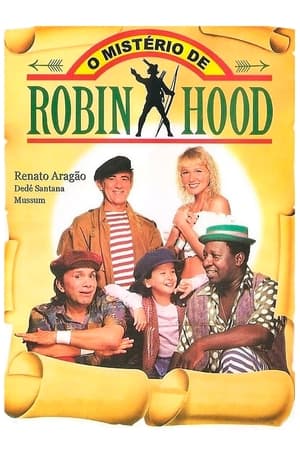 4.4
4.4O Mistério de Robin Hood(pt)
A kind wanderer living around a circus, who also happens to work as a modern Robin Hood, must solve the mystery behind the kidnapping of a lost little girl he meets.
 7.2
7.2Live Spectacle NARUTO ~Song of the Akatsuki~(ja)
After parting with Sasuke at the Final Valley, Uzumaki Naruto has been away from the village of Konohagakure to further his training. Two and a half years later, he finally returns to the village and takes his mission in Team Kakashi, then he finds the clue on Orochimaru. Naruto leads the team and heads to the place where Orochimaru is in order to save his friend Sasuke. However, little does he know that "Akatsuki" is seeking after his life to acquire the Nine-Tailed sealed in his body.
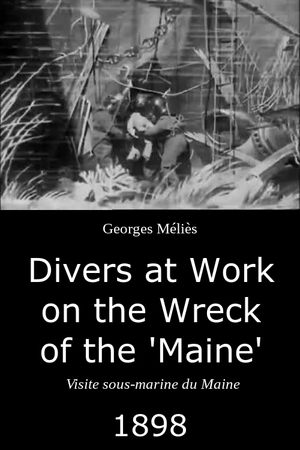 5.7
5.7Divers at Work on the Wreck of the "Maine"(fr)
Divers go to work on a wrecked ship (the battleship Maine that was blown up in Havana harbour during the Spanish-American War), surrounded by curiously disproportionate fish.
 7.1
7.1In Between(ar)
The film captures the daily duality of three young Palestinian women in Tel Aviv, caught between hometown tradition and big city abandon, and the price they must pay for a lifestyle that seems obvious to many: the freedom to work, party, have sex, and choose.
 5.9
5.9August(en)
August tells the story of two former lovers, Troy and Jonathan, who reunite after a long ago painful breakup. After spending several years in Spain, Troy returns to Los Angeles and decides to phone Jonathan and meet for coffee. A seemingly innocent rendezvous turns into an attempt to revive passions past. Only this time it's not that simple as Jonathan has a new beau, Raul, and is trying to make the right decision a second time around.
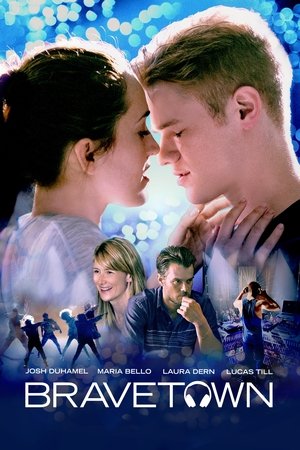 6.7
6.7Bravetown(en)
After an accidental drug overdose, a talented teenage DJ goes to live with his estranged father in a small Army town, where he gets to the bottom of his own pain and learns empathy for others.
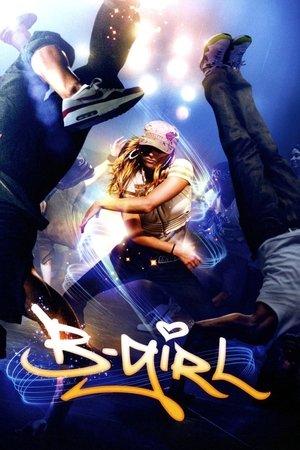 6.2
6.2B-Girl(en)
A young female breakdancer, Angel, moves to Los Angeles after an attack by an ex-boyfriend nearly ends her dance career forever. B-Girl follows Angel through recovery and acceptance of a new life as she busts a move into the male-centric world of underground hip hop.
 5.8
5.8A Christmas Kiss II(en)
At a Christmastime event, Jenna shares an impromptu, unforgettable kiss with the dashing billionaire, Cooper Montgomery. Unaware of his intentions and fearful of getting hurt in another relationship, Jenna vows to resist his charms, but begins to realize his affection is real as the two spend more time together.
Similar Movies
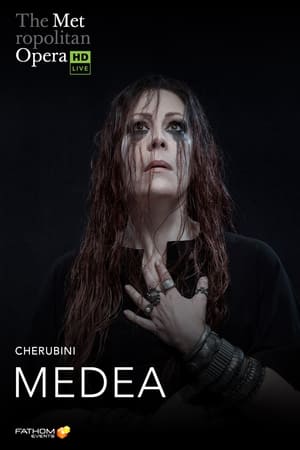 0.0
0.0The Metropolitan Opera: Medea(it)
Having triumphed at the Met in some of the repertory’s fiercest soprano roles, Sondra Radvanovsky stars as the mythic sorceress who will stop at nothing in her quest for vengeance. Joining Radvanovsky in the Met-premiere production of Cherubini’s rarely performed masterpiece is tenor Matthew Polenzani as Medea’s Argonaut husband, Giasone; soprano Janai Brugger as her rival for his love, Glauce; bass Michele Pertusi as Glauce’s father, Creonte, the King of Corinth; and mezzo-soprano Ekaterina Gubanova as Medea’s confidante, Neris. Carlo Rizzi conducts.
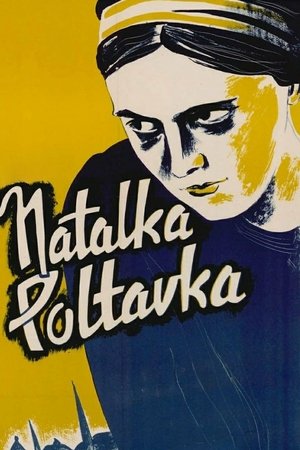 5.0
5.0Natalka Poltavka(uk)
This film is the first adaptation of an operetta written by Ukrainian composer Mykola Lysenko. It follows the trials and tribulations of Natalka and Peter (Petro). The sweethearts planned to get married; however, Natalka's father does not approve of the marriage because Petro was not affluent enough to keep Natalka in the manner he thought that she should be kept. Petro goes off to earn the required fortune.
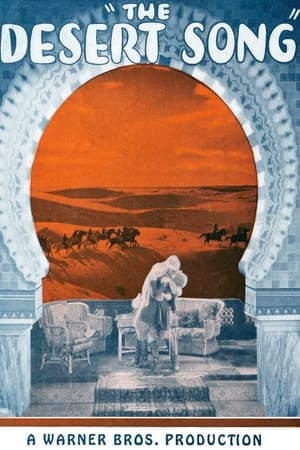 4.5
4.5The Desert Song(en)
French General Birabeau has been sent to Morocco to root out and destroy the Riffs, a band of Arab rebels, who threaten the safety of the French outpost in the Moroccan desert. Their dashing, daredevil leader is the mysterious "Red Shadow". Margot Bonvalet, a lovely, sassy French girl, is soon to be married at the fort to Birabeau's right-hand man, Captain Fontaine. Birabeau's son Pierre, in reality the Red Shadow, loves Margot, but pretends to be a milksop to preserve his secret identity. Margot tells Pierre that she secretly yearns to be swept into the arms of some bold, dashing sheik, perhaps even the Red Shadow himself. Pierre, as the Red Shadow, kidnaps Margot and declares his love for her.
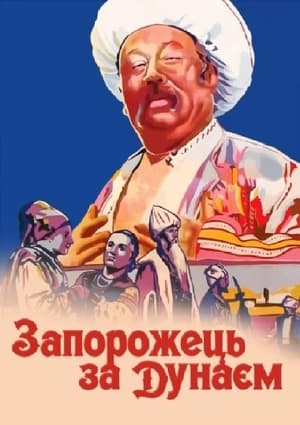 0.0
0.0A Cossack Beyond the Danube(uk)
A Ukrainian comic opera with spoken dialogue in three acts with music and libretto by the composer Semen Hulak-Artemovsky (1813–1873). The orchestration has subsequently been rewritten by composers such as Reinhold Glière and Heorhiy Maiboroda. This is one of the best-known Ukrainian comic operas depicting national themes.
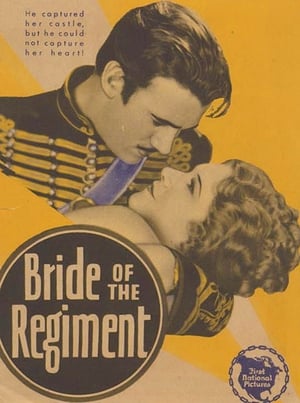 6.0
6.0Bride of the Regiment(en)
As they are leaving the church following their wedding, Count Adrian Beltrami and Countess Anna-Marie are told that the Austrians are marching on the town to quell an Italian uprising. The bride and relatives induce the count to flee to his castle, but Tangy, a silhouette cutter, brings word from the revolutionary committee asking him to return; the count goes, asking Tangy to pose as the count and protect Anna-Marie.
 6.7
6.7Carmen(fr)
A film version of the famous Bizet opera, where a soldier (Don Jose) falls in love with a beautiful factory worker (Carmen), but she does not reciprocate his feelings.
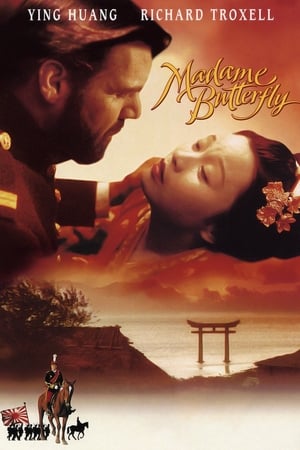 6.4
6.4Madame Butterfly(it)
Cio-Cio-San, a young Japanese geisha, seeks to fulfill her dreams through marriage to an American naval officer. Her faith in their future is shattered by his empty vows and the loss she endures touches something deep within us all.
 0.0
0.0Poulenc's The Human Voice / Bartók's Bluebeard's Castle(en)
Running through Bartók’s disenchanted tale, whose haunting music was initially condemned as unplayable, and the expression of despair in Poulenc’s monologue, the director Krzysztof Warlikowski perceives a shared dramatic thread, a shared feminine consciousness and a shared sense of imprisonment and suffocation: for the woman who penetrates the confines of Bluebeard’s castle and Elle, the woman who clings to a telephone conversation with a man as the only thing worth living for, are condemned to share the same fate. And this man she speaks to, does he really exist? Unless the director has interpreted Cocteau’s words to the letter and the telephone has become a “terrifying weapon that leaves no trace, makes no noise”…
Don Giovanni(it)
Live performance from Cologne Opera. Conlon conducts a skittishly dynamic performance of Don Giovanni. He relies on Thomas Allen’s tough Don to give the work much of its dark menace and on Holle’s terrifying Commendatore to provide the moral outrage – his job is to keep things moving, and he does. The exteriors – blank city spaces reminiscent of the paintings of Giorgio De Chirico – and moodily claustrophobic interiors mirror effectively the anguish of the orphaned Anna and the abandoned Elvira; this is a performance in which the two women victims of the Don function effectively as correctives to his libertine charm. Andrea Rost as Zerlina brings real delicacy to her role, reminding us that “La ci darem la mano” is a duet about her flirtation with Don Giovanni and not just a famous stand-alone moment. This is an admirable presentation of a fine performance.
 8.0
8.0Amadeus(en)
Disciplined Italian composer Antonio Salieri becomes consumed by jealousy and resentment towards the hedonistic and remarkably talented young Viennese composer Wolfgang Amadeus Mozart.
 7.1
7.1The Phantom of the Opera(en)
The deformed Phantom who haunts the Paris Opera House causes murder and mayhem in an attempt to make the woman he loves a star.
 7.0
7.0Cavalleria rusticana(it)
Franco Zeffirelli directs these two legendary La Scala productions telling tragic tales of jealousy. Mascagni's Cavalleria Rusticana features performances by Elena Obraztsova, Plácido Domingo, and Renato Bruson. Leoncavallo's I Pagliacci stars Teresa Stratas, Plácido Domingo, and Juan Pons. Both are conducted by George Pretre. This production of Pagliacci earned director Franco Zeffirelli the coveted Emmy as Best Director in the category of Classical Music Programming.
 5.5
5.5Puccini: Turandot(it)
Franco Zeffirelli's magnificient staging of Puccini's final opera - a fairy tale set in a mythical China - is one of the most popular in the Met repertory. In this Live in HD production, Maria Guleghina takes on the title role and Marcello Giordani is Calaf, the unknown prince. Marina Poplavskaya and Samuel Ramey co-star, and Andris Nelsons conducts in his Met debut.
 6.8
6.8Così fan tutte(it)
Who loves whom in Così fan tutte, Mozart’s and Da Ponte’s cruelly comic reflection on desire, fidelity and betrayal? Or have the confusions to which the main characters subject one another ensured that in spite of the heartfelt love duets and superficially fleetfooted comedy nothing will work any longer and that a sense of emotional erosion has replaced true feelings? Così fan tutte is a timeless work full of questions that affect us all. The Academy Award-winning director Michael Haneke once said that he was merely being precise and did not want to distort reality. In only his second opera production after Don Giovanni in 2006, he presents what ARTE described as a “disillusioned vision of love in an ice-cold, realistic interpretation”.
 6.0
6.0Fidelio(de)
Beethoven’s only opera is a masterpiece, an uplifting story of risk and triumph. In this new production, conducted by Antonio Pappano, Jonas Kaufmann plays the political prisoner Florestan, and Lise Davidsen his wife Leonore (disguised as ‘Fidelio’) who daringly sets out to rescue him. Set in strong counterpoint are the ingredients of domestic intrigue, determined love and the cruelty of an oppressive regime. The music is transcendent throughout and includes the famous Act I Quartet, the Prisoners’ Chorus and Florestan’s impassioned Act II cry in the darkness and vision of hope. Tobias Kratzer’s new staging brings together the dark reality of the French Revolutionary ‘Terror’ and our own time to illuminate Fidelio’s inspiring message of shared humanity.
 7.0
7.0Operette(de)
A musician is offered a job in Vienna as stage director, but his disagreements with the aristocratic opera manager end in abrupt firing in spite of a mutual attraction. He's quickly engaged by another theatre and becomes famous for his lavish stage productions and fine acting, which begins their golden age with Suppé and Strauss.
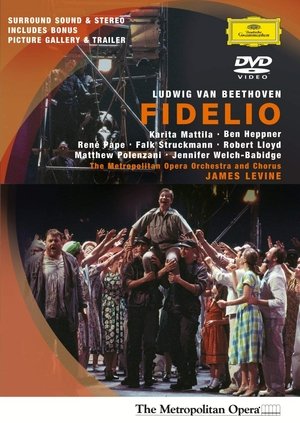 10.0
10.0Ludwig van Beethoven: Fidelio(en)
Two years prior to the opening scene, the nobleman Florestan has exposed or attempted to expose certain crimes of the nobleman Pizarro. In revenge, Pizarro has secretly imprisoned Florestan in the prison over which Pizarro is governor. The jailer of the prison, Rocco, has a daughter, Marzelline, and a servant (or assistant), Jaquino. Florestan’s wife, Leonore, came to Rocco’s door dressed as a boy seeking employment, and Rocco hired her. On orders, Rocco has been giving Florestan diminishing rations until he is nearly starved to death. Place: A Spanish state prison, a few miles from Seville; Time: Late 18th century.


